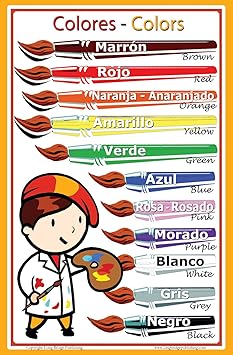For my third
connection I chose to connect to Collier. I decided this because there was many
time that the kids I worked with and others in the class that I interacted with
that answered me somewhat or fully in Spanish. For instance a few times
students would count in Spanish to do math and so on. As well in the hallways
signs were in both English and Spanish.
 Collier says that
you should use the student’s first language to help the student learn their
second. I believe this as well, because in the classes I was working in one
student was having trouble figuring out a problem. I then asked the other child
if he could help out the other student so I could see if he understood the
problem. He went to try and explain in English but stopped and ended in
Spanish. This student I believe couldn’t find the words he was looking to say
and he resorted back to his first language which Collier would agree with. I
didn’t tell them that they were wrong I let them go and talk in Spanish and
they got it right.
Collier says that
you should use the student’s first language to help the student learn their
second. I believe this as well, because in the classes I was working in one
student was having trouble figuring out a problem. I then asked the other child
if he could help out the other student so I could see if he understood the
problem. He went to try and explain in English but stopped and ended in
Spanish. This student I believe couldn’t find the words he was looking to say
and he resorted back to his first language which Collier would agree with. I
didn’t tell them that they were wrong I let them go and talk in Spanish and
they got it right. This
brings me to Colliers guideline # 6 “immediately
generates a question. Which language is best for English-language learner
literacy development: the home language. English (the second language), or
both? Happily, the research is clear about the best choice. The ‘most
successful long-term academic achievement occurs where the students' primary
language is the initial language of literacy’ (174). First, at the
early stages of instruction, using the home language for literacy builds the
self-worth of language minority students. Further, literacy research states
that first language literacy favorably influences subsequent second language
literacy (175). Once a child becomes literate in the home
language, literacy skills swiftly transfer to second language settings.”
This
brings me to Colliers guideline # 6 “immediately
generates a question. Which language is best for English-language learner
literacy development: the home language. English (the second language), or
both? Happily, the research is clear about the best choice. The ‘most
successful long-term academic achievement occurs where the students' primary
language is the initial language of literacy’ (174). First, at the
early stages of instruction, using the home language for literacy builds the
self-worth of language minority students. Further, literacy research states
that first language literacy favorably influences subsequent second language
literacy (175). Once a child becomes literate in the home
language, literacy skills swiftly transfer to second language settings.”
This to me is showing
that it is ok for students to use their first language and that in the early
phases of childhood they will quickly pick up their second language. This
connects perfectly because the students now are just making it into that stage
of picking it up quickly.
No comments:
Post a Comment